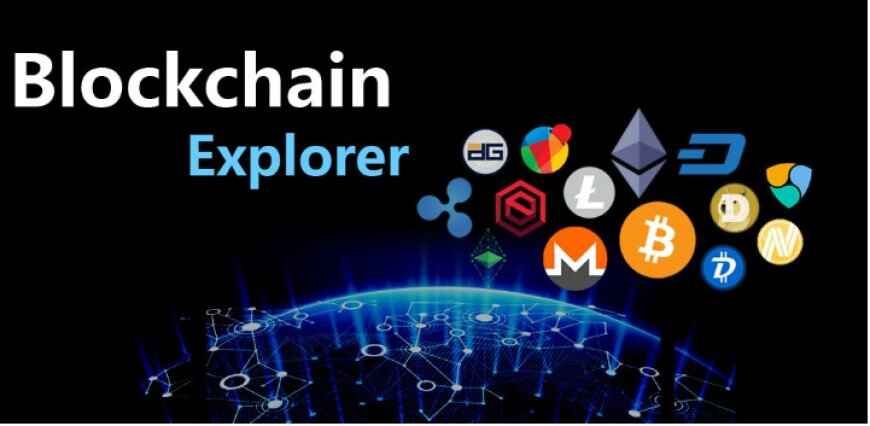Benefits and Challenges of Blockchain Implementation
Exploring the advantages and hurdles of integrating blockchain technology into various industries, understanding its impact on security, transparency, and efficiency.

Blockchain technology can potentially revolutionize various businesses by increasing efficiency, security, and transparency. Organizations using blockchain technology, however, must navigate a world that offers both opportunities and challenges. Blockchain's decentralized structure promotes openness and builds confidence, but there are obstacles to overcome, including scalability issues, unpredictability in regulations, and sophisticated system integration. Enterprises attempting to venture into the revolutionary area of blockchain deployment must strike a balance between the benefits and challenges.
The Core Features of Blockchain: A Decentralized Revolution
Originally developed for cryptocurrencies, such as Bitcoin, blockchain technology has evolved beyond finance. Its versatility finds applications across various industries as businesses seek to improve operations. Before delving into the benefits and challenges, it's essential to grasp the core features of blockchain. Operating on a decentralized ledger system, it ensures data integrity by distributing information across a network. This transparent, tamper-resistant approach is foundational, shaping how blockchain can revolutionize processes, foster trust, and provide secure, efficient solutions beyond its initial financial context.
Blockchain: An Industry-Related Safe and Open Structure
Blockchain functions through a decentralized ledger system, distributing data among a network of computers, ensuring a tamper-resistant and transparent record. This transparency minimizes fraud risk, fostering trust in transactions. Smart contracts, coded agreements that self-execute terms, enhance efficiency. By automating processes and eliminating intermediaries, they contribute to the overall effectiveness of blockchain systems. This technology's strength lies in its transparent, secure, and automated framework, offering a promising solution to streamline various industries and transactions
1. Transparency and Security
The decentralized architecture of blockchain mitigates the vulnerability of centralized data storage, reducing the likelihood of data manipulation and hacking. By distributing information across a network of nodes, no single point of failure exists, enhancing data security. This decentralized nature fosters a transparent and tamper-resistant environment, instilling trust among participants. Industries with a critical emphasis on data integrity, such as finance and healthcare, find reassurance in blockchain's ability to provide an immutable and trustworthy ledger, ultimately bolstering confidence in the reliability of shared information.
2. Efficiency and Reduced Costs
Smart contracts, a cornerstone of blockchain technology, revolutionize operations by automating processes. They eliminate the need for intermediaries, ensuring direct and secure execution of predefined contractual terms. This automation significantly accelerates transaction times, fostering swift and seamless interactions. Moreover, the efficiency gains extend beyond speed, encompassing cost reduction as manual processing requirements diminish. By cutting out intermediaries and automating workflows, smart contracts optimize resource utilization, enhance reliability, and ultimately contribute to a more cost-effective and streamlined operational environment.
3. Improved Traceability
Blockchain's impact on supply chain management is revolutionary. By offering an unalterable ledger for transactions, it enables precise tracking of a product's origin and journey. This transparency enhances accountability within the supply chain, discouraging fraudulent activities and reducing the prevalence of counterfeit goods. With each transaction securely recorded, stakeholders can verify the authenticity of products, fostering trust among participants. This heightened transparency not only safeguards the integrity of the supply chain but also ensures that consumers receive genuine, traceable products, addressing a critical concern in the fight against counterfeit practices.
Challenges
4. Energy Consumption
Another challenge associated with blockchain implementation, particularly in the case of proof-of-work consensus mechanisms (commonly used in cryptocurrencies like Bitcoin and Ethereum), is the significant energy consumption. The process of validating transactions, known as mining, requires substantial computing power, leading to environmental concerns. As sustainability becomes a growing priority for businesses, addressing the energy consumption of blockchain networks is essential.
5. Interoperability
Blockchain technology exists in various forms, each with its unique features and protocols. Achieving interoperability—ensuring seamless communication and interaction between different blockchain networks or between blockchain and traditional systems—poses a challenge. The lack of standardized protocols can hinder the widespread adoption of blockchain, as interoperability is crucial for creating a unified and connected ecosystem.
6. Data Privacy and Security Concerns
While blockchain is lauded for its security features, concerns about data privacy persist. The transparent nature of the technology means that once information is recorded on the blockchain, it is immutable. Striking a balance between transparency and protecting sensitive data is a challenge, especially in industries with stringent data protection regulations.
7. User Education and Adoption
Blockchain is a relatively nascent technology; many potential users may not fully understand its intricacies. Implementing blockchain requires not only technical expertise but also a concerted effort to educate stakeholders about its benefits and functionalities. A crucial aspect of successful blockchain implementation is overcoming resistance to change and fostering widespread adoption.
8. Cost of Implementation and Maintenance
While blockchain can lead to long-term cost savings through increased efficiency, the initial costs of implementing and maintaining a blockchain system can be substantial. Organizations need to allocate resources for technology upgrades, staff training, and ongoing maintenance to ensure the continued effectiveness of their blockchain solutions.
While the benefits of blockchain technology are promising, organizations must navigate several challenges to successfully implement and integrate it into their operations. Scalability, regulatory uncertainty, integration complexities, energy consumption, interoperability, data privacy, user education, and implementation costs are all factors that require careful consideration and strategic planning. Addressing these challenges will be instrumental in unlocking the full potential of blockchain and ushering in a new era of transparency, security, and efficiency across industries.
Unquestionably, blockchain technology has the potential to revolutionize several industries by bringing efficiency, security, and transparency. Organizations still have to deal with issues including scalability, regulatory uncertainty, and integration complexity despite the technology's apparent advantages. Accessing blockchain's full potential and bringing in a new era of safe, transparent, and effective business processes depend on successfully overcoming these obstacles. When companies begin the revolutionary path of using blockchain, striking the right balance between risk and profit is essential.




























































